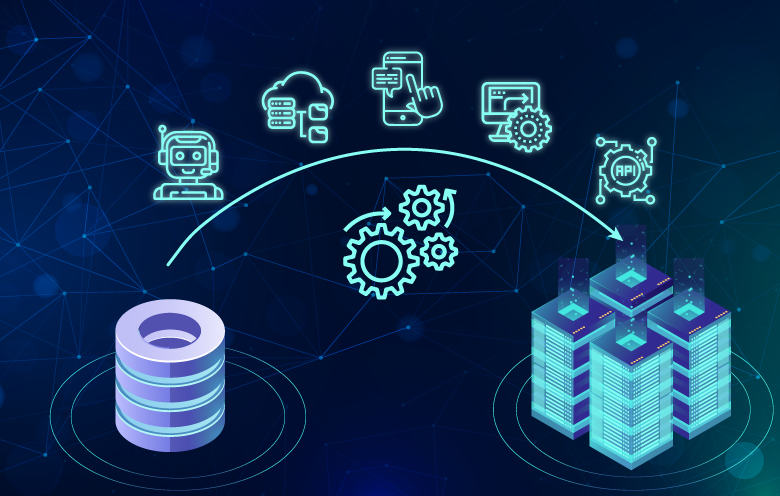
As technology rapidly evolves, businesses face the challenge of maintaining outdated, legacy applications. Modernizing these applications is crucial for organizations aiming to stay competitive, and AI low-code application development platforms provide the ideal solution.
Low-Code Platform for Application Development
Low-code platforms are transforming the application development landscape by enabling organizations to create solutions with minimal coding expertise. These platforms typically offer features such as:
- Visual Development Interfaces: Drag-and-drop functionalities that simplify the design process.
- Pre-built Templates: Ready-to-use templates that accelerate the development of common applications.
- Collaborative Tools: Enhanced collaboration among team members, fostering communication between developers and business stakeholders.
By democratizing app development, low-code platforms empower a broader range of users, including business analysts and citizen developers, to participate in creating applications. This results in increased innovation and responsiveness to business needs.
Explore about AI Low-Code Application Development
Low-Code Platforms for Enterprise Software Application Development
In enterprise software development, low-code platforms for enterprise application development facilitate the rapid creation of customized applications that align with organizational goals. Key advantages include:
- Scalability: Easily scale applications to meet business growth and user demands.
- Integration Capabilities: Seamlessly integrate with existing systems, databases, and APIs to enhance overall functionality.
- Cost Efficiency: Reduce development and maintenance costs compared to traditional software development methods.
These platforms enable enterprises to quickly address unique challenges by developing tailored solutions while ensuring compliance with industry standards. Agility is critical in today’s fast-paced environment, where companies must adapt to market changes swiftly.
What is Legacy Application Modernization?
Legacy applications are systems built on outdated technology that, while operational, are difficult to maintain and fail to meet modern business requirements. Legacy application modernization updates or improves these systems to align with current technology and business needs.
How Low-Code Platforms Enable Modernization
Low code platform for application development enable businesses to modernize legacy applications without requiring a complete system rewrite. The visual development environment and pre-built components make it easier to update specific parts of an application while preserving its core functionality.
Using low code, businesses can introduce new features, improve user experience, and integrate with modern systems—all while maintaining ongoing operations.
Learn more about Legacy Application Modernization with Low-Code
Benefits of Modernizing Legacy Applications
Modernizing legacy systems through low-code platforms offers several key benefits:
- Cost Savings: More affordable than building a new system from scratch.
- Improved Performance: Enhances internal processes and customer experiences.
- Increased Flexibility: Provides greater scalability and adaptability, ensuring systems remain future-proof.
Conclusion
AI-driven low-code platforms provide streamlined, cost-effective solutions for modernizing legacy applications. Businesses can enhance functionality, integrate advanced technologies, and ensure readiness for future challenges—all while optimizing costs and preserving core operations.


More Stories
Optimize Your Workflow with These Must-Have Tools
Best Carry-On Luggage: Your Ultimate Travel Companion
How the P10 Mask Enhances Your CPAP Experience